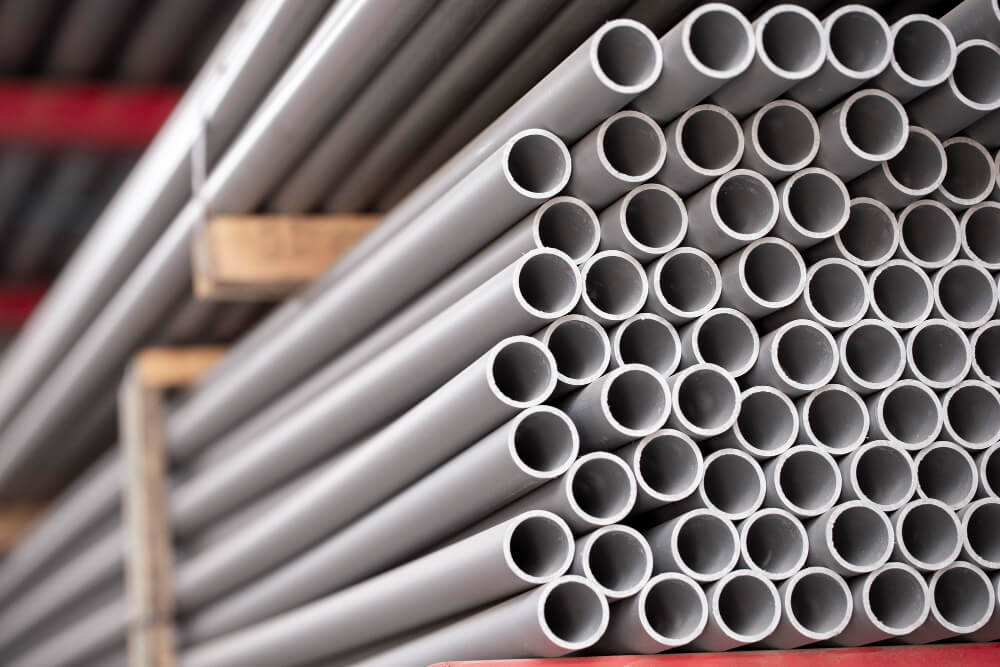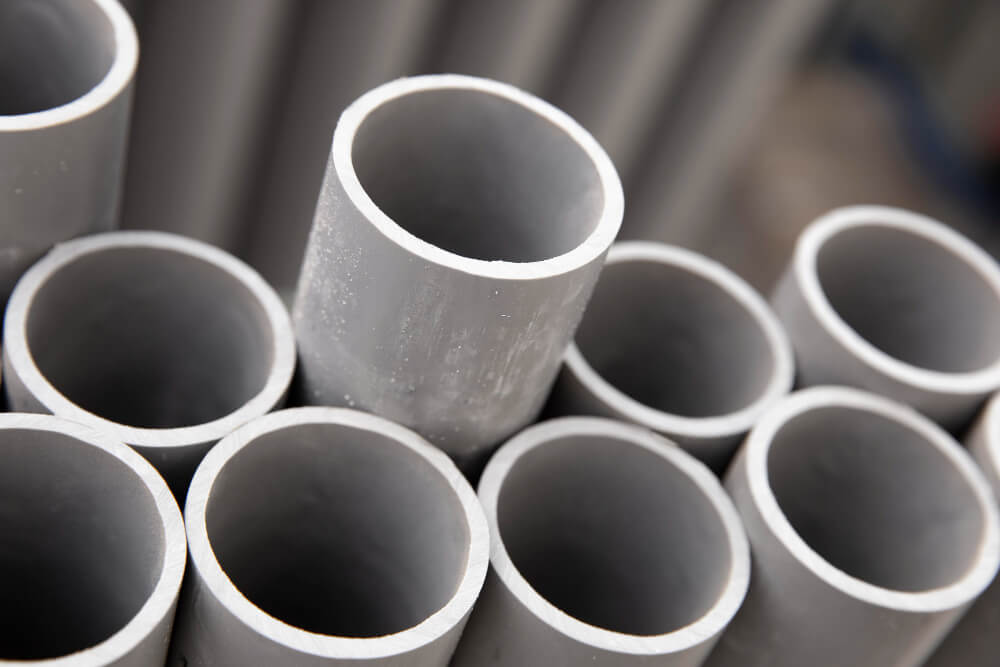Information about UPVC pipes

UPVC stands for Unplasticized Polyvinyl Chloride. UPVC have
been used in various materials like pipes, windows and doors too. But the use
of UPVC pipes is more popular in pipes than in windows and doors.
UPVC have been popular because they are more advantageous as
compared to the traditional materials. UPVC is seen as an environmental
friendly option because plastics are not used in them. In the manufacturing
process of UPVC, several chemicals are mixed together to form resin compound. This
resin compound is resistant against corrosion, chemical attack making them more
useful in pipes than in windows and doors because windows and door face less
attacks and often are required to look majestic rather than durable.
Costing and Advantages of UPVC pipes over other pipes materials
UPVC pipes costs less than other varieties of pipes such as PVC pipes, copper pipes and metal pipes. The advantage of UPVC pipes over iron pipes is that UPVC pipes are nearly as hard as iron pipes, but they can easily be cut using simple cutting tools whereas it is very difficult to cut iron. UPVC is usable both as pressure pipes and gravity pipes.
They are preferred both for sewer pipes and clean water supplying pressure pipes used in the underground. UPVC pipes are also fire resistant because of having low flammability and durable, making them a good option than plastic pipes. UPVC is often used as an alternative for wood. It is also used in place of cast iron for heavy-duty plumbing. UPVC can also handle a wide variety of temperatures.

Advantages of UPVC pipes
Use in Potable water transportation
UPVC pipe is made from unplasticized PVC. PVC is actually a
non-toxic resin and not mixing plastic in it makes it non-toxic. UPVC pipes are
indeed the best pipes for transporting potable water in municipal supplies. Unlike
Iron pipes that contain lead, UPVC pipes do not contain lead. They are approved
by health agencies throughout the world to use in industries related to food
and beverages.
Resistant to temperatures
UPVC pipes can resist temperature of 60 degree Celsius
consistently without melting. They are also resistant against fire for a
considerably long period of time.
Easy to Install
UPVC pipes are easy to install using solvent chemicals and
in threaded pipes. They are lightweight and easy to handle, thus making the
installation quicker.
No Chances of Build-up of scaling
UPVC pipes have almost zero chances of build-up of deposits
of solid inside the pipe. Because of this property, they require almost no
cleaning or less frequent cleaning.
UPVC Pipe Doesn’t Leak
Most of the brands of UPVC pipe make sure their product is
leak-proof. Some of them use solvent cement as the sealant for joints and give
a guarantee of their pipes being completely leak proof. Threaded joints and
push-fit joints are also leakage proof.
Long Term Cost Saving
If you use UPVC pipes in your plumbing system at home construction, you are going to save the construction cost in a long term. It is because maintenance cost of UPVC pipes is almost nil.

Features of UPVC Pipe
UPVC can be used for supplying both the hot water and cold
water. UPVC melts only at extreme temperature so water at boiling points can
also transport through UPVC pipes.
Metal pipes are not corrosion resistant and prone to rust. But
UPVC pipes literally never have corrosion issues. UPVC doesn’t react with cement
so UPVC pipes can be put inside while casting the slab. UPVC also has
antimicrobial properties, therefore they are very suitable for carrying potable
water.
UPVC is a strong material and that’s why it is durable than
any other pipe material too. Its inertness makes the fluid passing inside
remain safe against chemical change inside the pipeline.
Applications of UPVC pipes
UPVC pipelines are used in almost everywhere at home
including laboratories, kitchens, bathroom and sinks. UPVC pipes have been used
for ventilation pipes in washrooms as well. They are used in plumbing system
across potable water supply system. They are used in agricultural sector for
irrigation purposes too.
Pipelines transporting crude oils and edible fluids also use
UPVC as piping material. UPVC materials are also used in electrical conduits.
Sizes and Capacity of UPVC Pipes
UPVC pipes come in various sizes ranging from 12mm diameter
to 315mm outside diameter pipes. The pressure capacity of these pipes are anything
among 4 bars, 6 bars, 10 and 16 bars.
Regarding Pressure pipes, the sizes range from a half inches
to 8 inches. Most of the pressure pipes above 63mm diameter are available in push-fit
sockets in various pressure classes. The length of the pipe available in the
market is generally 6 meters.
Conclusion
UPVC Pipes are being extensively used in replacement of
other pipes because of its advantages in pricing, usage and durability. UPVC is
also environment friendly, that’s why Skillsewa uses UPVC pipes extensively in
construction works.